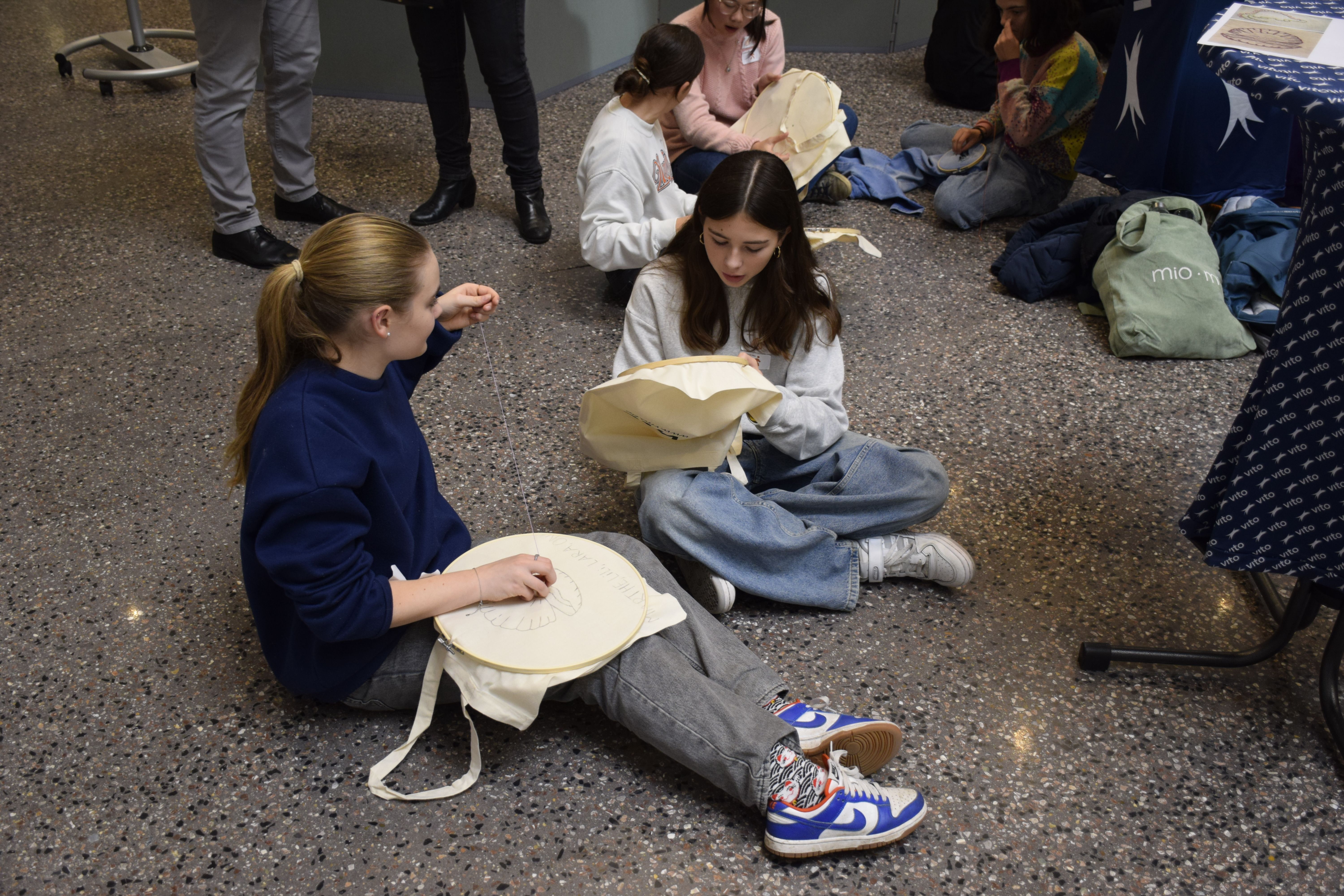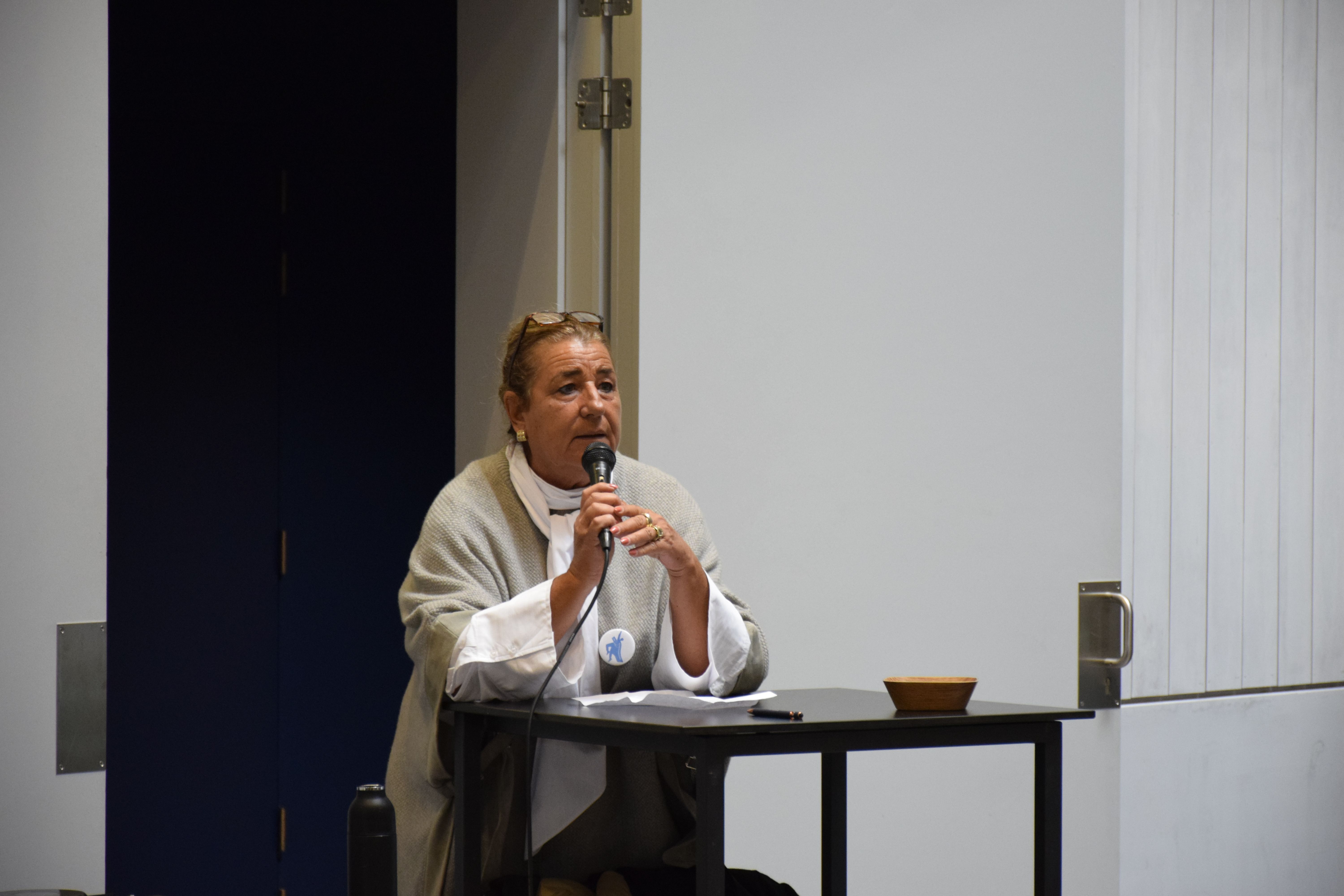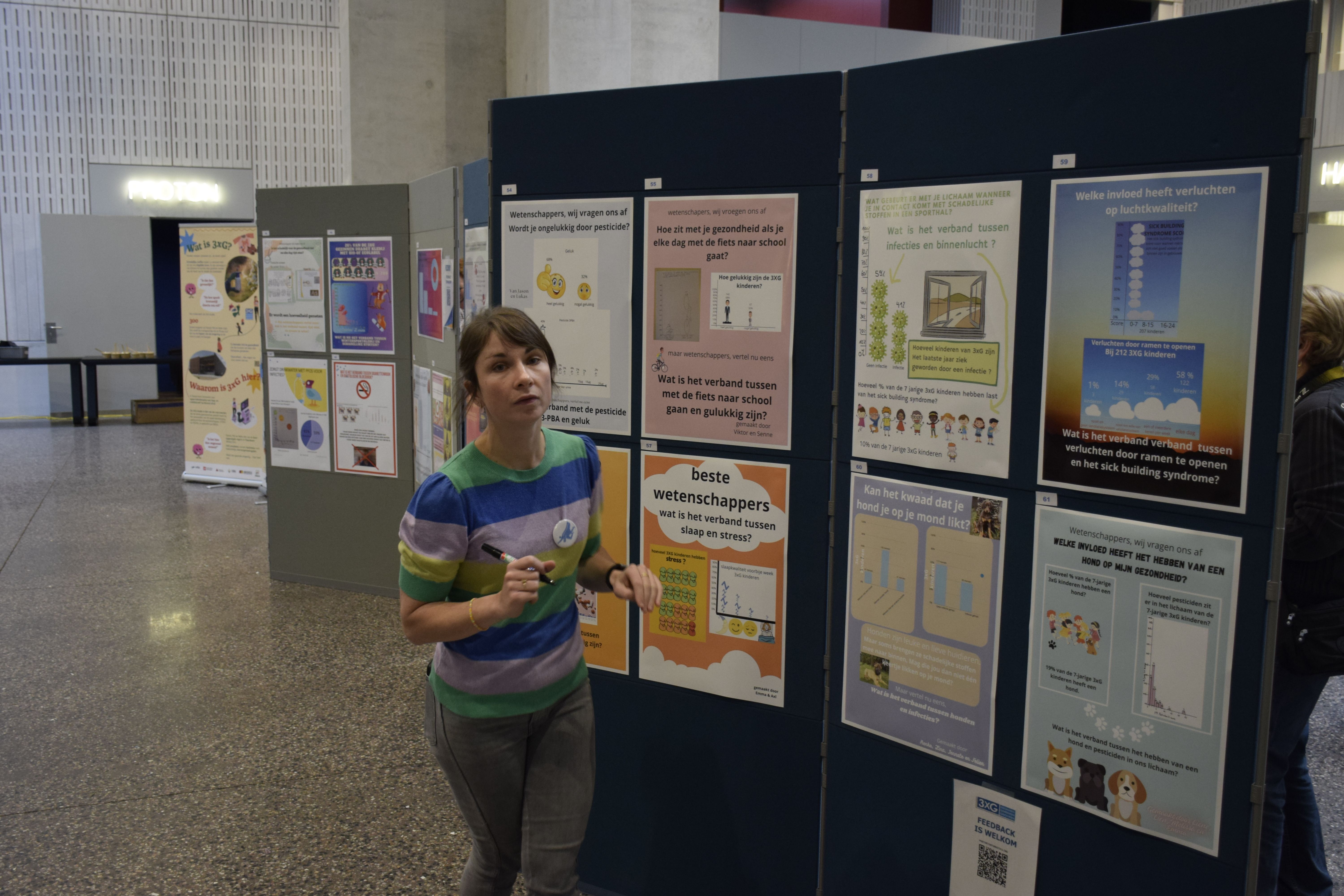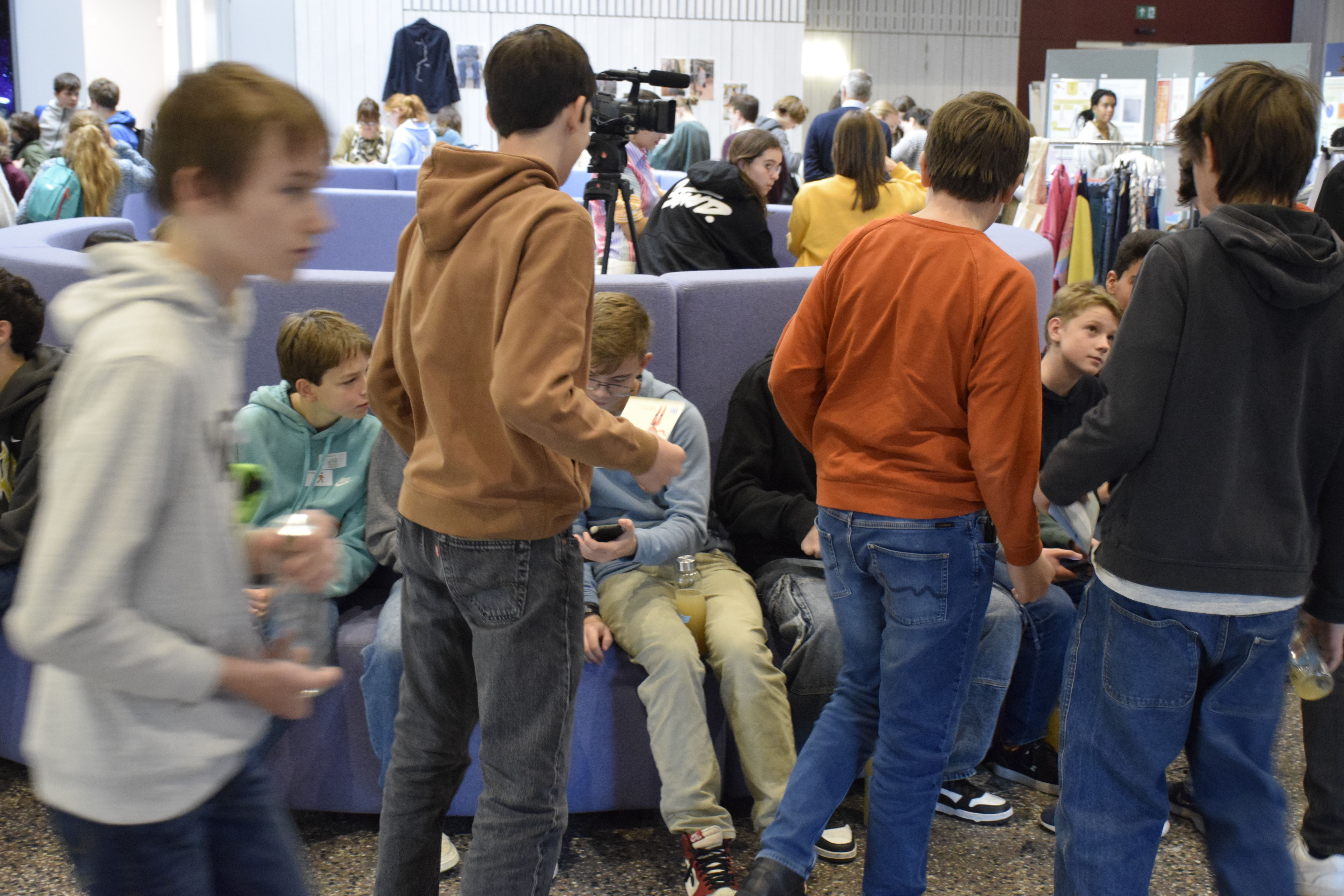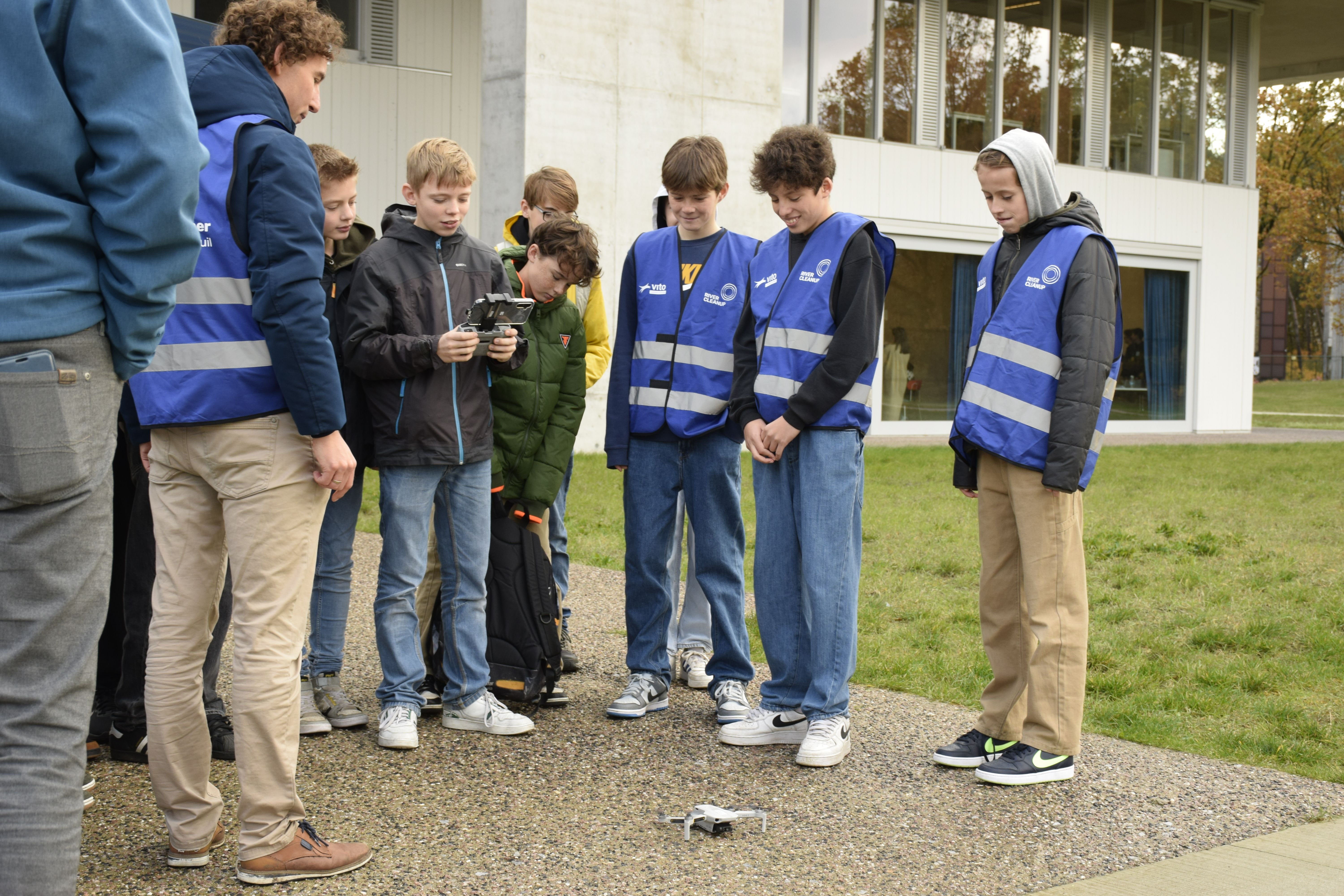On 15 November, nearly 200 students from 4 secondary schools in Mol gathered at the 'Festival of the Future.' Over the past few weeks, they learned about health and the environment in class through the educational package 'Gezondheidsbewakers' or 'Health Guardians' and concluded this with a morning filled with music, inspiring workshops, and the presentation of their self-made posters.
Every day, we come into contact with harmful substances in our environment, but how dangerous is that? To answer this crucial question, the researchers of the 3xG study are collecting a mountain of data about harmful substances in our bodies, our living environment, and our lifestyle from approximately 300 children in Dessel, Mol, and Retie. These children are being followed from their mothers' pregnancy until they reach 18 years old. Thanks to the 3xG participants acting as a kind of 'barometer' for harmful substances in our environment, the researchers are mapping exposure to these substances. Moreover, they aim to better understand the effects of these substances on our health and how our lifestyle plays a role. The 3xG study makes Dessel, Mol, and Retie one of the most closely monitored regions in Flanders.
The children involved in the 3xG study are currently between 8 and 13 years old. In recent months, this generation has been actively engaged in the 3xG research. Through the educational package 'Health Guardians', students from four high schools in Mol got to know the 3xG study inside out. In this way, they gained a deeper insight into the influence of our environment on our health. Armed with this new knowledge about the environment and health, the young people could ask questions to the 3xG researchers and explore answers by delving into the 3xG database.
This educational adventure concluded on 15 November at Tabloo in Dessel with the 'Festival of the Future,' an event featuring a captivating mix of music and inspiring workshops on health and sustainability.
Enthusiasm was certainly not lacking. It was also clear that the path the students had taken in recent weeks through the 'Health Guardians' program at school had borne fruit. The fact that they could apply that knowledge in a very interactive way during workshops was perceived by all children and their teachers as a significant added value.
The self-made posters demonstrating what we can learn from the 3xG study were presented to the visiting students at Tabloo. They became the jury of their own work and that of their peers. From the submitted posters, it is already evident which themes resonate the most with young people. Mental health and harmful substances topped the list, followed by exercise, sleep, and nutrition.
The students' own choices take center stage; they have the opportunity to determine the course of the research and place research results in the context of their own health choices. This contributes to authentic scientific research and emphasizes the power of young thinkers. The posters will be displayed to everyone from 27 November to 10 December through a creative exhibition at the administrative center "De Plaetse" in Dessel, the town hall of Retie, and 't Getouw in Mol.
About 3xG
The 3xG study is a scientific research project conducted by VITO, PIH, and UAntwerp. The project aims to map the exposure to environmental pollutants in the Mol, Dessel, and Retie regions, thereby monitoring the health of the local population. The project was initiated as a condition for the surface storage of low- and intermediate-level short-lived waste in Dessel, supported by the STORA and MONA partnerships, on behalf of NIRAS.


